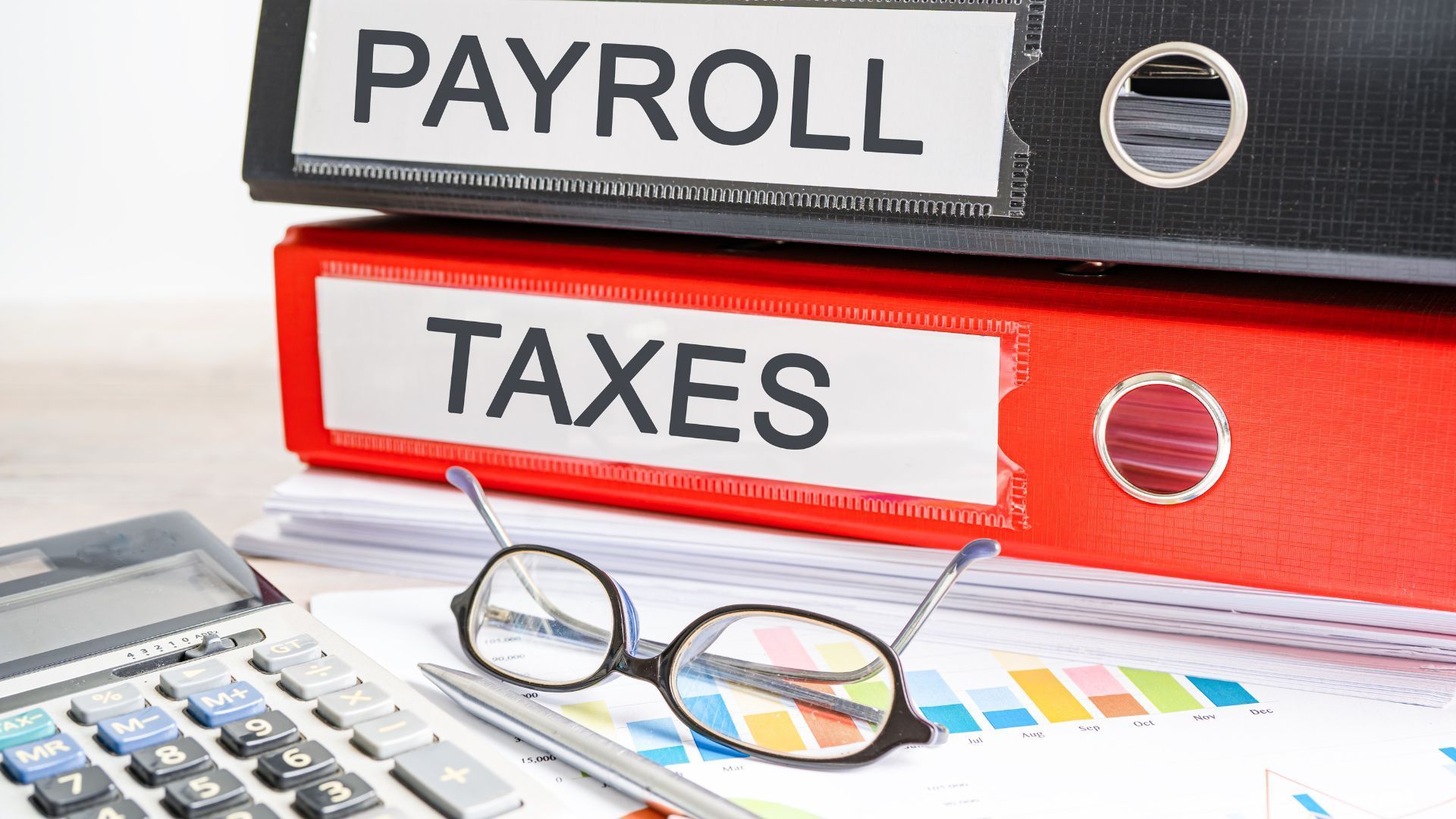Sole Trader vs Limited Taxes
Sole Trader vs. Limited Company: A Side-by-Side Look at Tax Responsibilities
Tax isn’t the most interesting of topics and it’s something that a lot of contractors try to ignore. After all, who likes to think about the amount they have to pay to HMRC? We certainly don’t, but it's not something that you can choose to avoid forever. It’s certainly not something that will take care of itself, as PAYE doesn’t apply when you're self-employed. It doesn’t matter if you’re a sole trader or a limited company, you have tax responsibilities that you can’t get out of. However, these tax responsibilities do differ, and whether you’re a sole trader or a limited company will determine what you need to do to keep your finances in check.
At Go Limited, we know that understanding your tax responsibilities can be confusing, but we’re here to help you understand what's required of you, both on a day-to-day basis and at the end of the tax year. We’re here to make sure that sole traders and contractors with a limited company are on top of their tax responsibilities, and we will help you decide which approach to contracting is right for you.

Sole Trader vs. Limited Company Tax
If you are thinking about setting up your own limited company, you’re probably being spurred on by the knowledge that limited company tax is often a lot more cost-effective. When you set up a limited company for contracting, you benefit by being able to maximise your take-home pay, making sure that you’re making the most money from the hard work that you put in. Of course, there are a few downsides to paying limited company tax, such as the additional administrative responsibilities it requires. It is by no means as simple as handling your income tax as a sole trader, which is why a lot of contractors are on the fence about whether to make the change.
Your Tax Responsibilities as a Sole Trader
When a lot of people first start contracting or freelancing, they do so as a self-employed sole trader. A sole trader is described by Oxford Languages as “a person who is the exclusive owner of a business, entitled to keep all profits after tax has been paid but liable for all losses” and it’s a relatively simple way of managing the financial side of being self-employed. Though you do have some tax responsibilities as a sole trader, they tend to be more straightforward and easier to understand than the tax responsibilities as a director of a limited company.
When you’re operating as a sole trader, you need to factor tax administration into the day-to-day running of your business. You are responsible for registering with HMRC for self-assessment, submitting an annual tax return and keeping accurate records of your income. You’re also responsible for paying income tax and National Insurance Contributions (NICs) on your business profits, and keeping records of any expenses that you plan to claim as tax-deductible costs. The simplicity of the sole trader tax structure appeals to a lot of people, especially during the early stages of business.

How Does Limited Company Tax Work?
One of the main downsides of sole trader tax is that it lacks the flexibility and tax-saving opportunities available to limited companies. When you’re working through a limited company, you need to pay limited company tax. This works in a different, and slightly more complex, way to paying tax as a sole trader. But, you are likely to find that hard work pays off, and these more intricate tax responsibilities do come with tax-saving benefits.
Once you have set up a limited company, your tax responsibilities immediately change. You become responsible for a range of things, including:
Corporation Tax
Your limited company is required to pay corporation tax on profits after allowable expenses.
Director’s Salary
As the director of a limited company, you need to pay income tax and NICs on your salary. Most directors keep this salary below the NIC threshold to reduce tax liabilities.
Dividends
You also have the option to pay yourself in dividends. Any post-tax profits distributed as dividends are subject to dividend tax, which is generally lower than income tax.
Value Added Tax (VAT)
If your limited company’s turnover exceeds £95,000, VAT registration is mandatory. You’ll then be responsible for factoring VAT into how you charge customers and your annual tax return. VAT is the tax everyone has to pay when they buy goods or services.
Though this tax structure is more complex than that of a sole trader, it offers the advantage of separating personal and business finances, whilst also maximising tax efficiency. This reduces your tax bill, whilst also keeping your business and personal finances completely separate.
Understanding the Tax Implications of IR35 for Limited Companies
If you decide to work as a contractor through a limited company, you need to understand IR35 legislation and what that means for your tax responsibilities. IR35 determines whether you are a genuine business that’s operating as a limited company, or if you’re technically an employee who’s employed by your client. If you fall under IR35, your tax responsibilities will be impacted in a big way. You’ll be required to pay income tax and NICs on all of your earnings, instead of benefiting from being taxed as a limited company.

Tax Implications and Considerations for Limited Company Contracting
If you’re a contractor who chooses to operate as a limited company, you often benefit from tax benefits that are unavailable to sole traders. For example, you can take income by mixing salary and dividends, which is a more tax-efficient way than just paying yourself a salary. This isn’t something that you can do as a sole trader, as you’re limited to being paid a salary only.
There also tends to be a wider range of allowable expenses for limited companies, and many sole traders find themselves limited in regards to what they can and can’t claim as tax deductible. There’s also the fact that a lot of people contracting through a limited company can access the Flat Rate VAT Scheme, which can be a cost-effective way of managing tax, something that’s also unavailable to many sole traders.
However, it’s important to remember that contractors operating through a limited company also have increased administrative tasks - such as preparing annual accounts, which are more detailed than those of a sole trader - maintaining financial records and ensuring timely tax payments. As a sole trader, you’ll have similar tasks, but they tend to be simpler and less time-consuming to organise, with many sole traders managing to handle everything without having to enlist the help of a professional accountant.
How to Reduce Sole Trader and Limited Company Tax
Both sole traders and limited companies have the chance to reduce their tax bill by claiming allowable expenses for costs related to the day-to-day running of the business. Whether you’re operating through a limited company or as a self-employed sole trader, you’re responsible for making sure that you’re being as tax efficient as possible by deducting allowable business expenses from your profits. This includes business costs such as office supplies, professional fees and travel. You only need to pay tax on your profits, and the figure used is calculated after tax deductions have been taken off.
As a limited company contractor, you also have the benefit of reducing your tax by maximising your pension contributions. Employer contributions to pensions are tax deductible for the business and can reduce taxable profits.
Sole Trader or Limited Company Tax: Which is Best?
There’s no right or wrong answer when it comes to whether it’s better to be a sole trader or a limited company, and the answer will depend on your individual circumstances. The amount of money you take, how you plan to grow your business and how keen you are to take on more administrative tasks - or whether you’re in a position to hire someone to do it for you - should all be taken into account.
The tax responsibilities of a sole trader are better for simplicity, lower incomes and businesses in the startup stages. This is why a lot of contractors start off as a sole trader, and set up a limited company when their business starts to achieve some notable success. Setting up a limited company is usually better for contractors with higher profits and those seeking tax efficiency.

FAQ
What’s the core tax difference between a sole trader and a limited company?
The main difference is how you and your business are taxed:
- As a sole trader, you and the business are the same entity. You pay Income Tax and National Insurance on your business profits via Self Assessment.
- A limited company is a separate legal entity. The company pays Corporation Tax on its profits, and you pay Income Tax and NICs on your salary, plus Dividend Tax if you take profit as dividends.
Which structure has the simpler tax setup?
Sole traders have the simpler setup – one tax return per year (your Self Assessment), and you’re taxed directly on your profits.
Limited companies require more filings:
- Corporation Tax return
- Annual accounts
- Director’s Self Assessment
- PAYE (if you pay yourself a salary)
- Possibly VAT if registered
- There’s more admin, but many business owners hire an accountant to handle it.
Who pays more tax overall – a sole trader or a limited company?
It depends on your income level:
- If you're earning under £30,000–£35,000, there may be little difference, and being a sole trader is often simpler and cheaper.
- If you’re earning more than £35,000 and especially £50,000+, going limited can be more tax-efficient. That’s because you can:
- Pay yourself a low salary
- Take the rest as dividends (which are taxed at a lower rate than income)
- Claim more business expenses
What taxes do sole traders have to pay?
Sole traders are responsible for:
- Income Tax on profits above the personal allowance (£12,570 in 2025)
- Class 2 NICs (if earnings are above £6,725 – a flat weekly rate)
- Class 4 NICs (6% on profits between £12,570 and £50,270, and 2% above that)
- All paid through the annual Self Assessment tax return.
What taxes do limited companies pay?
Limited companies pay:
- Corporation Tax (19–25% depending on profits)
- Director’s Income Tax and NICs (on salary)
- Dividend Tax (on profit withdrawals above £500 allowance)
- Employer NICs (if employing staff or paying a director’s salary above threshold)
- This structure allows better control over how and when you’re taxed – but it comes with more rules and reporting.
Can both claim business expenses?
Yes – but limited companies generally have wider options for claiming allowable expenses. Both can claim costs that are “wholly and exclusively” for business, such as:
- Travel (not commuting)
- Equipment and tools
- Business insurance
- Marketing and software
However, companies can sometimes claim for things sole traders can’t, such as pension contributions or more structured director benefits.
Which is better for VAT registration – sole trader or limited company?
Either can register for VAT, and the rules are the same. You must register once your taxable turnover hits £90,000, or you can register voluntarily.
It’s more about your business model and clients – if you work with VAT-registered businesses, voluntary registration may be beneficial regardless of structure.
Can I switch from sole trader to limited company later?
Yes, and many people do. It’s common to start as a sole trader while the business is small and then incorporate later as you grow.
When switching, you’ll need to:
- Set up the company with Companies House
- Inform HMRC
- Open a business bank account
- Transfer assets and contracts (if needed)
- A good accountant can help you make the transition smoothly.
Are there any risks with being a sole trader versus running a company?
Yes – the main risk as a sole trader is personal liability. If your business incurs debts or is sued, your personal assets (like your home or savings) are at risk.
With a limited company, your personal liability is “limited” – meaning the company takes the hit, not you (unless you’ve acted improperly or given personal guarantees).
Which is better for long-term business growth?
If you're considering scaling your business, hiring employees, or pursuing larger contracts, establishing a limited company is generally a better choice. This structure:
- Appears more professional
- Provides greater credibility
- Enables more organised financial planning
While sole traders can also grow, there typically comes a point where operating as a limited company becomes more beneficial, both in terms of tax advantages and reputation.
Which option should I choose?
It depends on your goals and circumstances. Consider:
- Your current and expected income
- Whether you want simplicity or control
- Your risk tolerance (personal liability vs company protection)
- Future growth plans
- Whether you’re comfortable with or willing to pay for professional support
Please note: Any rates and thresholds mentioned in this article are correct at the time of publishing and may be subject to change.

At Go Limited, we know there’s a lot to consider when you’re looking at the tax responsibilities of sole traders and limited companies, as you don’t want to make the wrong decision. But, we’re here to help. Our experts know all there is to know about limited company tax, and we’re here to guide you through the process of setting everything up, maximising your income and getting the most out of the various tax benefits available to you.
*Please note: Any rates and thresholds mentioned in this article are correct at the time of publishing and may be subject to change.










